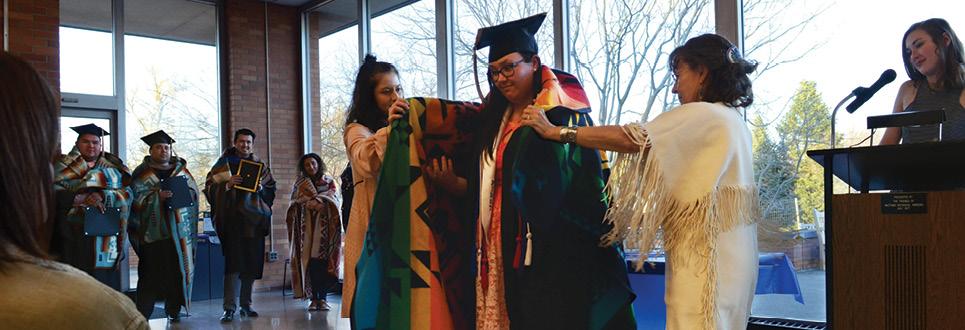

The Michigan Indian Tuition Waiver program, authorized by the State of Michigan, waives the tuition costs for eligible Native Americans in the state's public community colleges and universities, including the University of Michigan. Students granted the waiver by the state will still be required to cover other costs, such as housing and meals, textbooks, and incidentals.
To be eligible for the waiver, which is granted by the Michigan Department of Civil Rights, a student must meet the following criteria set by the state:
Eligible students should apply for the waiver by completing the student section of the Michigan Indian Tuition Waiver (MITW) Application, submitting the MITW application (and attached documentation) to their Tribal Enrollment Department for certification, and ensuring that their entire application, including the tribally-certified section, and accompanying documents are submitted to the Michigan Department of Civil Rights for verification.
Typically, tribal officials will submit the documents to MDCR after they complete their section of the application; however, they may return the documents to you. It is your responsibility to ensure the completed application and required documents are submitted.
For more information, visit the website for the Michigan Department of Civil Rights.
In addition to the Michigan Indian Tuition Waiver granted by the state, the University of Michigan will waive all Common Application filing fees for students who qualify as tribal-enrolled American Indian or Alaska Native applicants (Tribal Enrollment Number required). Applicants should check "Other Fee Waiver Request" and "American Indian or Alaska Native Tribal Enrollee" in the U-M specific portion of the application.
The University of Michigan is located on the traditional territory of the Anishinaabe people.
In 1817, the Ojibwe, Odawa, and Bodewadami Nations made the largest single land transfer to the University of Michigan. This was offered ceremonially as a gift through the Treaty at the Foot of the Rapids so that their children could be educated. Through these words of acknowledgment, their contemporary and ancestral ties to the land and their contributions to the University are renewed and reaffirmed.